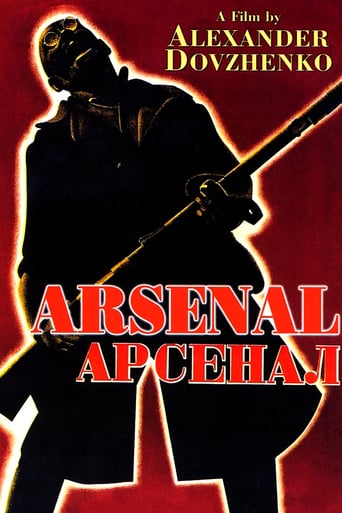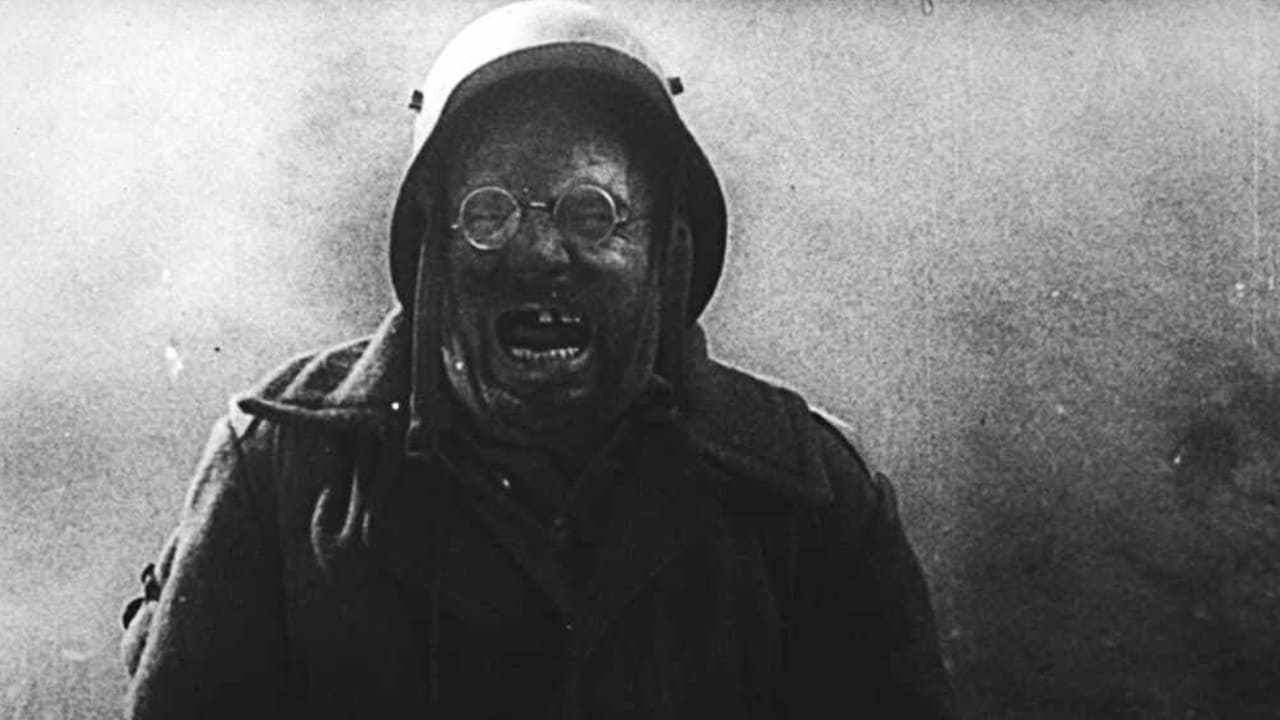chaos-rampant
It boggles the mind to contemplate how far back was cinema set with the advent of sound; not sound per se, but the whole political environment that was concurrent at the time. So many fascinating experiments with film were afoot by the late 20's and would be put on hold for the next twenty, thirty years.With DW Griffith ten years before, cinema was a transliteration. The narrative was straight-forward, time, even when broken apart, was a straight line that rushed towards climax that revealed our placement in destiny, the chain of causality was clearly defined - this begat that, and we perfectly understood why. Film was merely a tool of chronicle, with the gods - the mechanisms above - and shadows - the internal image outwardly recast - largely taken out.But just ten years later, something like this was already so far ahead. So, the causality of events is left to our sphere of imagination, narrative is fragmented, purposely eliptic into modernist abstraction. Images require our folding in them to be complete with meaning, or channel their imports across different levels of experience; there is a scene of men rushing on horses to bury their comrade, they could be rushing into a number of things; and back at the weapons foundry where a strike is holding up, eloquent shots of machinery whirring in motion suggest afoot the social machinations at large. Life here is not passed down to us whole, with purpose or meaning; but is rather the process of coming into being.This is far-reaching stuff in terms of what can be done with cinema. It posits that the image can directly depict private, inner states and larger, collective worlds as bound together by common soul - the oppressed peasants motionless like zombies, the military officer mechanically shooting at partisans. The shots of galloping horses are frenzied, but up above the clouded skies ebb with time. So, what started only a couple of years before in Soviet studios had reached this apex; image was engineered - or perhaps intuited in the case of Dovzhenko, who was the least of the theorists - to unify vision. The empire is inland as well as out, and stretches across the one space.There are few words in all of this, our safe passage with logic is made perilous, adventuresome. Germanic cinema offered us the world of noir and I am grateful to them; but when it comes to what we often call 'pure cinema' as a quick resort, they could not match here - or France.Oh, there is The Last Laugh, which is a marvellous study. But purely in terms of images Dovzhenko is worth two or three of those.
Flak_Magnet
Don't be discouraged by this Soviet film's age or obscurity - it is one of the finest movies ever made, and it stands alongside Carl Theodore Dreyer's "The Passion of Joan of Arc," as the most modernist film of the 1920's. This is a spectacular visual achievement, and its visionary conception of cinema is moderinism that we've still failed to catch up with. Unlike most recognized masterpieces of Soviet silent cinema (e.g. "The Battleship Potempkin," "Earth," "The End of St. Petersburg," etc.), however, "Arsenal" is a surprisingly approachable film, and its strangeness and abstraction are consistently fascinating. Originally intended as a propaganda film, "Arsenal" is the second component of director Alexander Dovzhenko's "Ukraine Trilogy," and it details an episode in the Russian Civil War (~1918) in which the Kiev Arsenal workers aided the Bolshevik army against the ruling Central Rada. Dovzhenko's approach is somewhat similar to Sergei Eisentein, in that he relied heavily on montage, but his pace was less frenetic, and his Expressionism was more exaggerated. As detailed in the film's academic commentary, Dovzhenko was previously a political cartoonist, and you can see traces of this background in "Arsenal." The characters in this film are caricatures, sometimes grotesque and sometimes funny. Similarly, there is a strangeness and remoteness in "Arsenal," which makes the film's few intentionally lucid passages quite dreamlike. The DVD commentary is concise and informative, and a terrific primer for the first time viewing. If you have any interest in silent cinema, modernism, or film as art, "Arsenal" is a film you SHOULD NOT MISS. ---|--- Was this review helpful?
Spuzzlightyear
Another montage crazy film by the Russians here. Instead of Eisenstein laying it on thick, we have Alexander Dovzshenko getting into the act with 'Arsenal'. A film about, yes, the oppression of the people against the state! Instead of the Russians, this time we the Ukrainians becoming oppressed. Mainly set in a arsenal factory (!!) the people fight the threat of Government interference! Set to a frenetic score, Arsenal sure must have kept the editors busy with many crazy jump cuts going at a frenetic pace. What does it all mean? Not 100% sure, as some of the obvious symbolism just flew right by me. It's an OK movie if you're into that sort of stuff. (You know who you are).
Oslo Jargo (Bartok Kinski)
The film itself is only a compilation of scenes which have no inherent meaning to someone living outside of Russia. I won't deny that some of the images and techniques were quite revolutionary at the time (filmed 1928) but the problem with the film is that it has no interest to the intellectual or common man. We are merely watching an arranged form of pictures, ranging from a one arm man beating a horse, to a toothless soldier in the war. Everything in between is awkward, haphazard and quite unnecessary. It would have been possible to invent a forum which kept the viewer interested but this would not be it although the method of the director is quite brilliant.In all, one should view this if they are an art student, on hallucinogenic drugs, or a student of pre-Tarkovskian cinema.


 AD
AD
